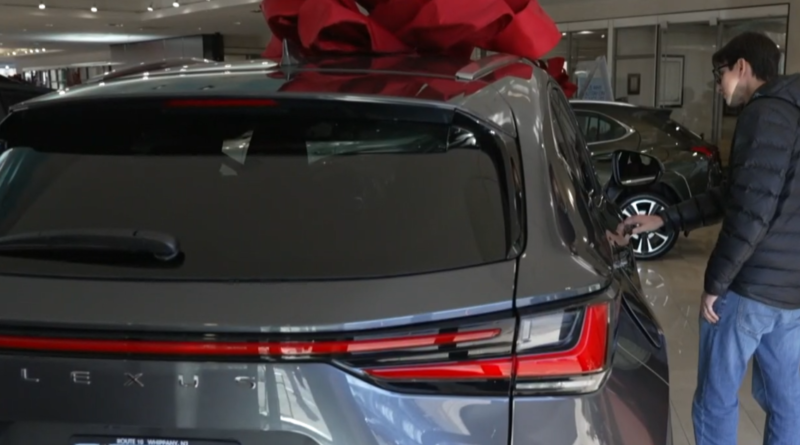Why Trump’s tariff threat could raise car prices significantly
Whippany, New Jersey — Tom Maoli, the owner of a new and used car dealership in New Jersey, says drivers could see a big jump in prices if President Trump follows through on his threat to impose 25% tariffs on Mexico and Canada.
“Every car that comes out of any dealership is going to raise the prices,” Maoli said. “Parts come from all over the world.”
The average price of a new passenger vehicle in the U.S. in December was $49,740, according to Kelly Blue Blook.
Maoli speculates that if tariffs are implemented, prices for new cars could jump anywhere from 5% to “up to 15%.”
With higher prices for new cars, prices for used vehicles would also rise because of increased demand.
Some of the biggest car brands, including Ford, General Motors and Stellantis, have plants in Mexico and Canada.
And according to Maoli, more than half of the parts — such as batteries and motor components — for cars assembled at production plants in the U.S. are sourced elsewhere and could also get hit with tariffs, especially with the president also proposing new tariffs on China.
“I think the manufacturer has no choice but to pass that along to the consumer, because they need to drive profits,” Maoli said.
How quickly could consumers see prices increase?
“Anything that has not been shipped yet — or is at the dock that’s getting shipped into these ports — that’s ultimately going into a vehicle to be manufactured,” Maoli said. “It’s immediate.”
But that’s not all. Repair costs could go up too. Everything from air filters to washer fluid is imported from overseas.
“These brake pads come from China,” Maoli said. “Some of them come from Mexico. These brake pads could go up as much as 20%, which ultimately impact the cost to the consumer when they do that.”
That means that even if drivers choose to hold onto their current vehicle instead of purchasing a new one, they could still likely be impacted.
“Because if you’re not buying, you’re fixing,” Maoli said. “You’ve got to keep the car on the road. You can’t stop transportation. You have to get your family to work and to school.”
Tariffs could incentivize manufacturers to bring jobs to the U.S. But that is not something car companies can do overnight. It could take as much as 18 to 24 months to develop those plants, Maoli said. Most in the auto industry, though, are hoping these threats are just a negotiating tactic.


